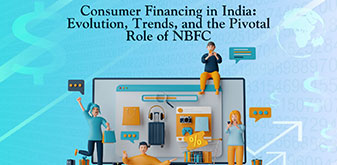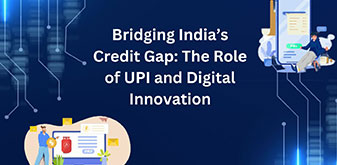Why open source microfinance software is not your best bet
Updated On : April 2023
Introduction
Open source microfinance software is available for use, modification, and distribution without any license fee. The primary advantage of open source microfinance software is that it enables the development of cost-effective solutions that can be implemented cost effectively within the microfinance industry. Additionally, the software can be tweaked and customized to fit the specific needs of users. The development process is driven by a passionate community, which leads to sudden bursts of innovation and timely updates. On top of that, open source software is often touted as more transparent and accountable than its proprietary counterparts because its code is publicly available for review and auditing.
Importance of Microfinance Software in India
The utilization of microfinance institutions (MFIs) has attained ubiquitous usage in India, chiefly in rendering financial amenities to low income and underserved populations, encompassing small loans, savings accounts, and insurance. These services are critical for poverty alleviation and economic development in the country. However, handling intricate financial transactions and data related to microfinance can pose significant challenges without specialized software. Here's where microfinance software, a tool that can streamline operations, enhance data accuracy, increase efficiency, and provide superior customer service comes into the picture.
Challenges of Open Source Microfinance Software in India
Open source software, especially for MFIs, seem to lose their advantage when evaluated critically from a business perspective. There are numerous challenges open source microfinance software face as specified below:
- Limited customization and flexibility: When it comes to open source software, customization is possible but not without its hurdles. It demands technical proficiency and resources to execute the process with any level of efficiency. Unfortunately, this can prove to be a roadblock for Indian MFIs as they struggle to keep their software compliant to latest regulations.
- Limited technical support and expertise: Open source software is often community-driven, which means that dedicated technical support may not always be available for prompt issue resolution. This poses a significant challenge for MFIs that rely on their software to carry out their operations, often in remote regions of the country.
- Lack of user-friendly interfaces: The user interfaces of open source software can be difficult to navigate for non-technical personnel. This can lead to mistakes and operational inefficiencies that can be detrimental to an MFI's success.
- Security issues: Perhaps the biggest concern with open source software is its security vulnerabilities. Since it is publicly available, it can be a prime target for security breaches, which can have serious consequences for MFIs that deal with sensitive financial data.
Advantages of Proprietary Microfinance Software over Open Source Software in India
Proprietary microfinance software can offer several advantages for MFIs in India:
- Tailored to specific needs and requirements
The unparalleled versatility of proprietary software allows for the seamless customization of each microfinance institution's (MFI) distinct exigencies and prerequisites, propelling an upsurge in productivity and a marked improvement in customer service delivery through bespoke solutions that are tailored to perfection. - Extensive technical support and expertise
Proprietary software often comes with a dedicated technical team, ready to provide timely support and expert guidance when glitches arise. This becomes crucial for microfinance institutions (MFIs) that depend heavily on their software. It can make a world of difference in their ability to function smoothly and with confidence. So, having a team of dependable tech gurus at the ready can be a game-changer for MFIs looking to maximize their operational efficiency and effectiveness. - User-friendly interfaces
The design of proprietary software often prioritizes ease-of-use, with a focus on creating a user-friendly interface that even non-technical staff can navigate with ease and proficiency. This is a key advantage for microfinance institutions (MFIs), as it ensures that the software is accessible and practical for staff members of all skill levels. By reducing barriers to adoption and streamlining workflows, user-friendly proprietary software can help MFIs optimize their operations and empower their teams to work more efficiently. - Robust security features
Proprietary software is frequently created with an unwavering emphasis on building robust security features, safeguarding against insidious data breaches and other malfeasances that threaten system integrity. This is a critical attribute for microfinance institutions (MFIs) that handle sensitive financial data, as it ensures that the software is fortified against potential security threats. By providing an unshakeable layer of protection, proprietary software can help MFIs maintain the trust of their clients and safeguard their reputation in the marketplace.
Overall, while proprietary microfinance software may be more expensive than open source alternatives, it can offer several advantages that are critical for the success of MFIs in India.
What Are the Alternatives to Open Source Software for Microfinance?
- Proprietary software
Proprietary software is a unique software solution that is cultivated and peddled by a singular company, frequently accompanied by a dedicated support staff that provides technical assistance and customer service. While it may have licensing fees, the value proposition of proprietary software lies in its ability to offer a individualized solution for microfinance organizations. With its unique blend of customization and flexibility, proprietary software can help MFIs streamline their workflows and optimize their operations, propelling them towards greater operational efficiency and success. - Cloud-based software
The advent of cloud-based software has revolutionized the way microfinance institutions (MFIs) approach software solutions. By leveraging remote servers and internet connectivity, MFIs can now access a scalable and adaptive software environment, without the need for exhaustive technical resources. This offers a new paradigm for MFIs, enabling them to unlock new levels of operational agility and scalability, and expand their operations with greater ease and speed. The cloud-based approach offers a unique value proposition that empowers MFIs to optimize their resources and reach new heights of operational efficiency. - Hybrid solutions
Hybrid software solutions represent a dynamic synthesis of open source and proprietary software, amalgamating the best of both worlds. This innovative approach offers a nuanced balance between customization and flexibility, while also providing a robust support framework through dedicated technical support and customer service. This unique blend enables microfinance institutions (MFIs) to tailor their software solutions to their specific needs, while also ensuring that they have the resources and expertise to maintain and enhance their systems over time. The result is a dynamic and adaptable software solution that can help MFIs optimize their operations and drive sustainable growth over the long term. - Mobile-based software
Mobile-based software solutions have emerged as a promising option for microfinance institutions (MFIs) operating in India, where use of mobile devices are rampant. By leveraging this technology, MFIs can access a cost-effective and readily accessible solution for their microfinance operations, opening new avenues for operational optimization and growth. This approach has significant potential for expanding financial inclusion, as it enables MFIs to reach previously underserved populations through mobile channels. As such, mobile-based software solutions represent a powerful tool for MFIs looking to expand their reach and impact in the Indian market.
Conclusion
While open source microfinance software can offer cost-effective solutions for microfinance organizations in India, it also comes with significant challenges such as scalability and limited customer support. Proprietary software, cloud-based solutions, hybrid solutions, and mobile-based software are all alternatives to open source software that may offer better scalability, technical support, and customization options.
Ultimately, the choice of software will depend on the specific needs and requirements of the MFI, as well as their budget and technical capabilities. MFIs should carefully evaluate their options and choose software that will help them achieve their goals and serve their clients effectively.
Leave Comments :
Latest Blog
-
 The Top 10 Co-operative banks in India 2025 Updated
On : March 2025
The Top 10 Co-operative banks in India 2025 Updated
On : March 2025
-
 The Top 10 Microfinance Companies in India 2025 Updated
On : January 2025
The Top 10 Microfinance Companies in India 2025 Updated
On : January 2025
-
 Consumer Financing in India: Evolution, Trends, and the Pivotal Role of NBFCs Updated
On : February 2025
Consumer Financing in India: Evolution, Trends, and the Pivotal Role of NBFCs Updated
On : February 2025
-
 Bridging India’s Credit Gap: The Role of UPI and Digital Innovation Updated
On : February 2025
Bridging India’s Credit Gap: The Role of UPI and Digital Innovation Updated
On : February 2025



Comments :
whatsapp +2348136482342
I'm overjoyed to share my remarkable experience with Ethical Hacks Recovery, who successfully recovered my stolen Bitcoin after a devastating scam, after falling victim to a devastating Bitcoin scam, I thought all hope was lost.
Ethical Hacks Recovery came to my rescue, providing expertise, guidance, and unwavering support. Their cutting-edge technology and strategic methods helped recover my stolen Bitcoin in record time.
Thanks to Ethical Hacks Recovery, I have regained control of my financial security. I highly recommend their exceptional recovery services to anyone who has fallen victim to cryptocurrency scams.
Contact them via email now;
Email addresses:
info@ethicalhacksrecovery. com,
support@ethicalhacksrecovery. com,
Or
Visit: ethicalhacksrecovery. com
This could also save another victim out there.
Audrey Winston, UK. :)
I'm overjoyed to share my remarkable experience with Ethical Hacks Recovery, who successfully recovered my stolen Bitcoin after a devastating scam, after falling victim to a devastating Bitcoin scam, I thought all hope was lost.
Ethical Hacks Recovery came to my rescue, providing expertise, guidance, and unwavering support. Their cutting-edge technology and strategic methods helped recover my stolen Bitcoin in record time.
Thanks to Ethical Hacks Recovery, I have regained control of my financial security. I highly recommend their exceptional recovery services to anyone who has fallen victim to cryptocurrency scams.
Contact them via email now;
Email addresses:
info@ethicalhacksrecovery. com,
support@ethicalhacksrecovery. com,
Or
Visit: ethicalhacksrecovery. com
This could also save another victim out there.
Audrey Winston, UK.
How do I recover my lost bitcoin before the scammer gets away with it?
OMEGA CRYPTO RECOVERY SPECIALIST is a company that has gained a reputation for its expertise in recovering stolen bitcoins, usdt, eth, nfts etc. from scammers. With the increasing popularity of Bitcoins, scammers have found ways to exploit unsuspecting victims and steal their bitcoin holdings. OMEGA CRYPTO RECOVERY SPECIALIST has made it their mission to help victims recover their stolen bitcoins and bring scammers to justice. Secure your coins today
Website: omegarecoveryspecialist .co m
Whatsap Line; +1 (701, 660 (04 75
Mailbox: omegaCryptos@consultant .co m